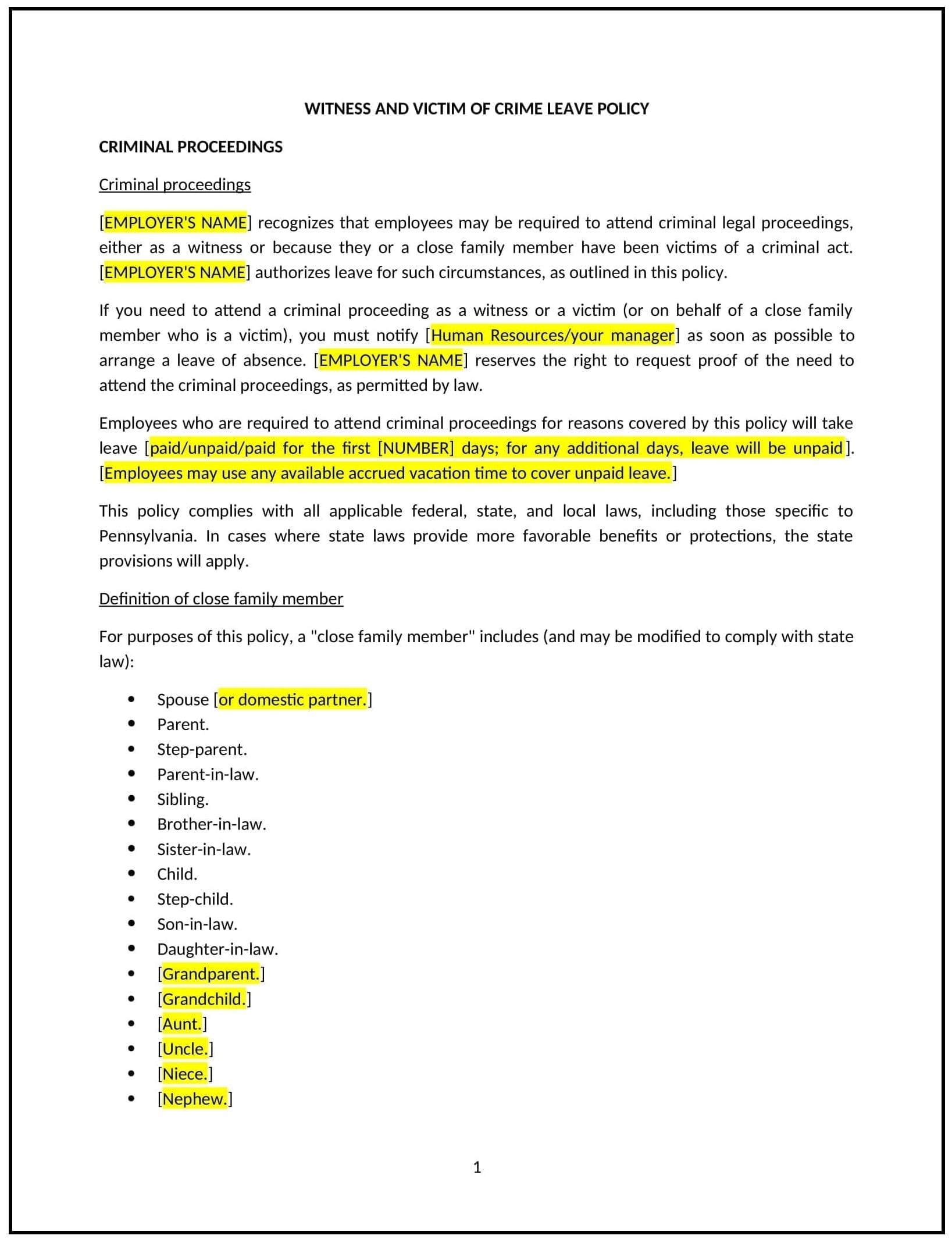Witness and victim of crime leave policy (Pennsylvania): Free template
Got contracts to review? While you're here for policies, let Cobrief make contract review effortless—start your free review now.

Customize this template for free
Witness and victim of crime leave policy (Pennsylvania)
This witness and victim of crime leave policy is designed to help businesses in Pennsylvania support employees who need time off to participate in legal proceedings as a witness or victim of a crime. By providing clear guidelines for eligibility, documentation, and job protection, this template ensures fairness and compliance with Pennsylvania labor laws.
By using this template, businesses can demonstrate empathy, maintain operational consistency, and align with state-specific regulations.
How to use this witness and victim of crime leave policy (Pennsylvania)
- Define eligible leave: Clearly specify situations where leave is applicable, such as testifying in court, attending legal proceedings, or cooperating with law enforcement as a witness or victim.
- Outline documentation requirements: Require employees to provide proof of their involvement, such as a subpoena, court order, or official notice.
- Address job protection: Emphasize that employees are entitled to return to their position or a similar role after their leave, as required by law.
- Include pay guidelines: Specify whether the leave is paid or unpaid, depending on company policy and state regulations.
- Reflect Pennsylvania-specific considerations: Tailor the policy to address local legal requirements or regional practices related to witness and victim leave.
Benefits of using a witness and victim of crime leave policy (Pennsylvania)
A well-structured witness and victim of crime leave policy supports employees and legal compliance. Here's how it helps:
- Demonstrates empathy: Provides support for employees during challenging circumstances involving legal proceedings.
- Promotes fairness: Establishes consistent guidelines for granting and managing leave requests.
- Protects employee rights: Ensures compliance with Pennsylvania laws that safeguard employees’ ability to participate in legal proceedings.
- Maintains operational consistency: Helps businesses plan for employee absences while maintaining workflow.
- Reflects local needs: Addresses Pennsylvania-specific labor laws and practices related to witness and victim leave.
Tips for using a witness and victim of crime leave policy (Pennsylvania)
- Communicate the policy: Share the policy with employees to ensure they understand their rights and responsibilities regarding leave for legal proceedings.
- Train managers: Equip supervisors with the knowledge to handle leave requests fairly and compassionately while adhering to the policy.
- Document leave requests: Maintain detailed records of requests, supporting documents, and the duration of leave to ensure compliance and transparency.
- Provide resources: Offer additional support, such as access to counseling services, for employees who may need emotional assistance during this time.
- Review periodically: Update the policy to reflect changes in Pennsylvania labor laws, court procedures, or business needs.